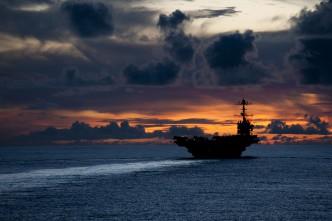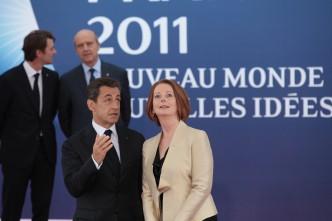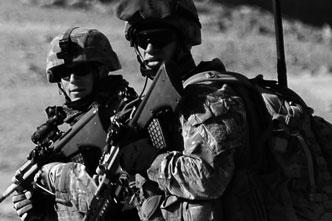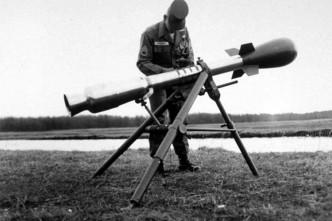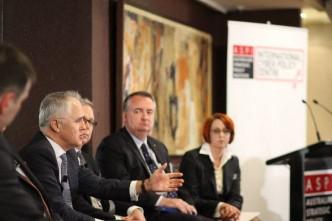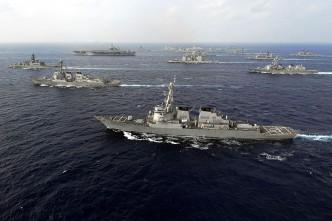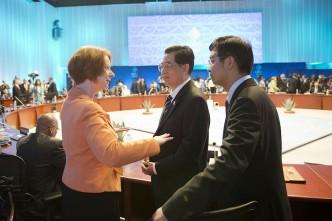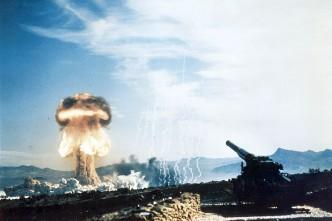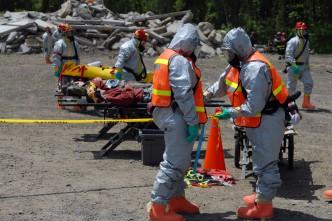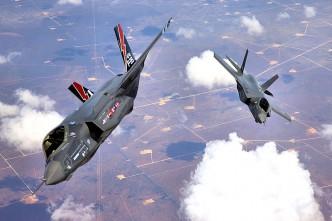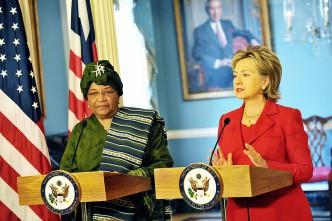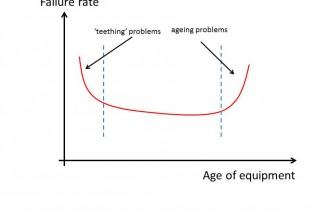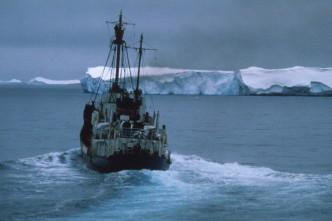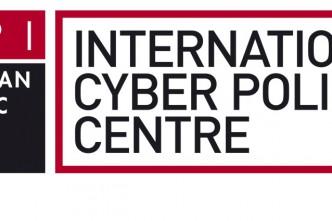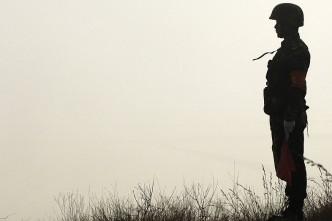Ben Schreer’s recent post on China’s maritime dilemmas reminded us that we should always think about what capabilities are intended to achieve, and not make a fetish of the capabilities themselves. Beijing’s progress in A2/AD …
Julia Gillard defined herself early on in her leadership with the remark that foreign policy wasn’t her passion. A self-deprecating sense of humour isn’t always a political asset in a leader and this was the …
Amid the circus that was the final week of the 43rd Parliament, the Parliamentary Joint Committee on Intelligence and Security (PJCIS) quietly tabled its report on the Inquiry into Potential Reforms of Australia’s National Security …
Crispin Rovere and Kalman A Robertson suggest eliminating low-yield non-strategic nuclear weapons (NSNW) in ‘Non-strategic nuclear weapons: The next step in multilateral arms control’. I’m sceptical of their proposed solution—a Minimum Yield Threshold Treaty. Firstly, …
Last Thursday the Australian Strategic Policy Institute, in partnership with the Commonwealth Bank, launched its new International Cyber Policy Centre (ICPC). A packed audience of key public and private sector stakeholders, all with a direct …
Most Australians feel secure in our food supply; few of us are on the knife’s edge of survival or driven to extreme behaviour. The greatest apparent risk to most Australians’ food security is the inability …
The strategy behind China’s emerging naval capability is subject to considerable debate. Most of the commentary concentrates on the People’s Liberation Army Navy’s (PLAN) capability development. Some commentators argue that the PLAN has shifted its …
History will be kind to Julia Gillard. Take this is as a relative rather than a qualitative judgement. History will have to be kinder because it would be impossible to be as harsh as current …
From the late 1940s until the fall of the Berlin Wall, the two superpowers engaged in a standoff whereby each threatened the very existence of the other with tens of thousands of strategic nuclear warheads. …
Shocked and confused. That’s how the international community is reacting to news that a major Australian radiological security initiative has just been canned. The corridors of the International Atomic Energy Agency (IAEA) were abuzz with …
I discussed previously that force structure planning should take into account that new equipment projects have very long timelines—Andrew Davies’ post this morning explains clearly the downsides of getting the planning wrong. It might help …
The Prime Ministership of Julia Gillard raised important issues about the treatment of women political leaders in Australian society. Gillard’s impassioned ‘misogyny speech‘ was a defining moment of her leadership. In her resignation speech Gillard …
In my previous post on project timelines, I made the point that defence projects these days are taking longer to deliver than in the past. The reasons are many and varied–and we shouldn’t rule out …
Attention has often focused on China’s undersea fleet of conventional and nuclear-powered submarines, as an integral component of an anti-access and area-denial (A2/AD) complex that also includes shore-based aircraft, land-attack and anti-ship missiles, integrated air …
Richard Herr’s recent post on Russia’s links with Fiji was fascinating. But it’s also worth noting that Russia has been active in our southern backyard. As long time Antarctic observer Andrew Darby recently pointed out: …
Launching the ASPI International Cyber Policy Centre The ability to leverage cyberspace is one of the twenty first century’s most important sources of power. State and non-state actors can use this power to achieve financial, …
This week has seen the release of two government papers on the issue of cybercrime. On Monday The Attorney General’s Department launched the National Plan to Combat Cybercrime, the key policy announcement of which was …
I explained yesterday how the Chinese have thoroughly digested the Anglosphere’s Rules of the Road, and have steered themselves to prosperity in the process. The Anglosphere Ways of War are equally well understood. Indeed, China …
Visiting the troops deployed overseas has been a tradition for Australian politicians at least as far back as June 1916, when Billy Hughes travelled to the Western Front and met soldiers shortly before the appalling …
In July 2010, US Secretary of State Hillary Clinton journeyed to Hanoi and proposed that bilateral relations be raised to a strategic partnership. Negotiations became bogged down by late 2011 when the two sides disagreed …
